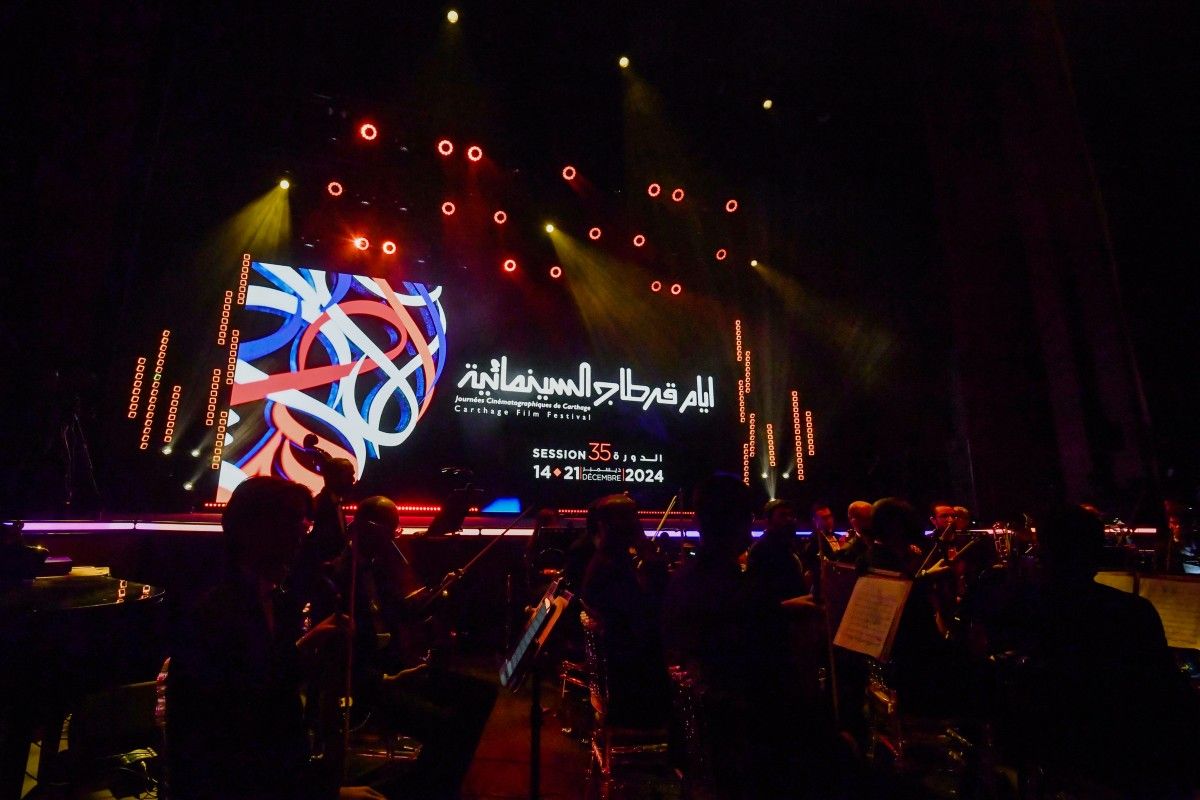
The 35th edition of the Carthage Film Festival (JCC), a prestigious pan-African and pan-Arab event, opened on December 14, 2024, in Tunis. With over 200 films from more than 20 Arab and African countries, the festival promises a rich and powerful lineup.
The 35th Carthage Film Festival (JCC), one of Africa and the Arab world’s most iconic cinematic events, officially began in Tunis on December 14, 2024. This year’s program offers a diverse lineup of over 200 films, reflecting themes of social justice, cultural resilience, and artistic expression.
The festival opened with two standout films at the Cité de la Culture in central Tunis: the restored Iraqi documentary The Freedom Giver (Le Libérateur), directed by Kays Al-Zubaidi, who passed away on December 1, and the Palestinian short film Upshot, directed by Maha Haj.
Running until December 21, this year’s competition features 56 films, including 15 feature-length fiction films, 13 feature-length documentaries, and 17 short fiction films. Artistic director Lamia Belkaied Guiga described the selection as a reflection of “the festival’s identity,” emphasizing its commitment to socially engaged cinema and values of justice and humanity.
The festival pays tribute to the celebrated director Hany Abu-Assad, further reaffirming its focus on humanist values and critical storytelling. Tunisian cinema has a significant presence at the JCC, with 99 films across various sections. Among the official competition entries is Borj Roumi, directed by Moncef Dhouib, which highlights Tunisia’s political history by recounting the grim realities of the infamous prison.
To further support Tunisia’s thriving film industry, festival organizers have introduced a national competition to showcase the country’s creative energy. Férid Boughedir, the honorary president and acclaimed director of Halfaouine, Child of the Terraces (1990), emphasized that this initiative highlights the dynamism of Tunisian filmmaking.
The 35th edition also honors international cinematic legends, including Algerian filmmaker Merzak Allouache, Iranian director Mohsen Makhmalbaf, and Senegalese pioneer Ababacar Samb Makharam. Their contributions to world cinema continue to inspire a new generation of filmmakers.
By celebrating cultural resilience, politically engaged storytelling, and artistic diversity, the Carthage Film Festival remains a vital platform for pan-African and pan-Arab cinema.
With AFP



Comments